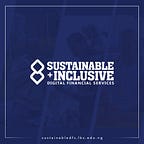The Conflict on Pricing of USSD Services: A Disturbing Epitome for Strategic Alliances in Financial Inclusion?
The news reported the brokering of an amicable resolution of the dispute between key stakeholders in the telecommunication and banking industry on the pricing of Unstructured Supplementary Service Data (USSD) that could have severely disrupted banking services and the economy. The policy on USSD services was designed to promote “cost effective, more user-friendly, and handset agnostic” low-value financial transactions. Incidentally, it promotes inclusion, as it enables use of feature phones for financial transactions, does not require data or internet to operate and is easily accessible anytime and anywhere. However, as the Association of Licenced Telecommunications Operators of Nigeria (ALTON) points out: “the USSD has become very important in Nigeria’s financial sector, as millions of Nigerians are only able to access financial services through the USSD infrastructure.” The major objective of the USSD Code was about managing systemic and consumer protection risks.
The conflict between the mobile network operators (MNOs) and the deposit money banks (DMBs) turned majorly on pricing of the service, incidence of payment (DMBs or ultimate consumer) and quantum of compensation for the value created for the banks. Apparently, “… the Nigerian Communications Commission (NCC)…, the CBN and the Mobile Network Operators came up with an understanding to help the banks take services to even remote, unbanked environments. NCC gave the banks USSD free of charge.” In October 2019, Telco’s sought to charge banks for USSD services as their service providers, whilst the banks preferred that Telco’s should charge customers directly. Banks charged consumers between N53 and N70 for individual USSD sessions. In August 2020, the NCC stated that Nigerian banks owed the Telco’s ₦17 billion ($41.4 million) for USSD services and revised a Determination on USSD Pricing to allow mobile operators to charge subscribers for USSD services. This was overruled by the Minister of Communications and Digital Economy who maintained that the service was provided to the banks. Meanwhile, Central Bank of Nigeria (CBN) gave cover to the banks, proffering that it was concerned about DMB’s cost minimization and financial system stability.
The resolution of the conflict is positive and a good example of amicable dispute resolution. However, some salient issues about stakeholder collaboration and regulatory governance of industry strategic alliances in financial inclusion arise. Snippets of the SIDFS Policy Stream research may yield some useful data on these issues.
In mid-2020, the SIDFS Policy work stream surveyed mainly Financial Service Providers (FSPs) and Regulators to inter alia: record their perception on the level of synergy among Regulators and between Regulators and other ecosystem stakeholders.
The perception was that synergy and collaboration between regulators and FSPs and among all stakeholders was predominantly average as demonstrated by data from FSPs as shown in the figures below…
The perception among regulators was that synergy and collaboration between regulators and among all stakeholders was predominantly less than average as demonstrated by the data from Regulators as shown in the figures below…
The saga of the conflict over the pricing of USSD services apparently confirms the data, as it was surprising that the matter acrimoniously festered for so long and had to go to the brink.
What is even more surprising was that the banks were charging consumers apparently unconscionable rates for USSD sessions. Some would say that the regulator tacitly “looked away” and failed in its duty to uphold decent market conduct and to adequately protect consumers.
Secondly, the saga yields very poor example and portents for building a culture of constructive strategic alliances in financial services and inclusion in Nigeria. Apparently, the banks viewed the relationship with Telco’s not as a strategic alliance, nor as strategic contracts, but as a business environmental infrastructural externality chargeable to the society through crony regulation. This is akin to the neoliberal unheroic capitalist strategy associated with banks since the 19th century of “privatizing profits and socializing their losses.” The CBN Governor was reported to have said that:
“I have told the banks that they have to move their business, move their traffic to a telecom company that is ready to provide it at the lowest possible, if not zero cost. And that is where we stand, and we must achieve it.’’
Expectation of absolute or near charity by Telco’s is baffling, given that the sustainable financial health of the Telco’s is as important to the national economy as that of the banks.
Apparently, the more significant strategic and governance issues for strategic alliances in the financial inclusion ecosystem, and perhaps also the larger national business environment, may be dependent on regulatory incentives and culture rather than mere contracting and negotiation dynamics among industry operators. We respectfully proffer that only a win-win, ethical, rational and national interest oriented stance and values in contracting, stakeholder and regulatory collaboration will optimally incentivise constructive stakeholder engagement and industry strategic alliances beneficial to financial inclusion and customer protection. The collaborative amicable settlement of the pricing conflict is commendable and should be the epitome of stakeholder and regulatory engagement going forward. But will the settlement harm financial inclusion? Opinions are divided on the matter.
~~~~~~~~~~~~~~
Professor Olawale Ajai is the Policy Lead at the Sustainable and Inclusive Digital Financial Services Initiative
